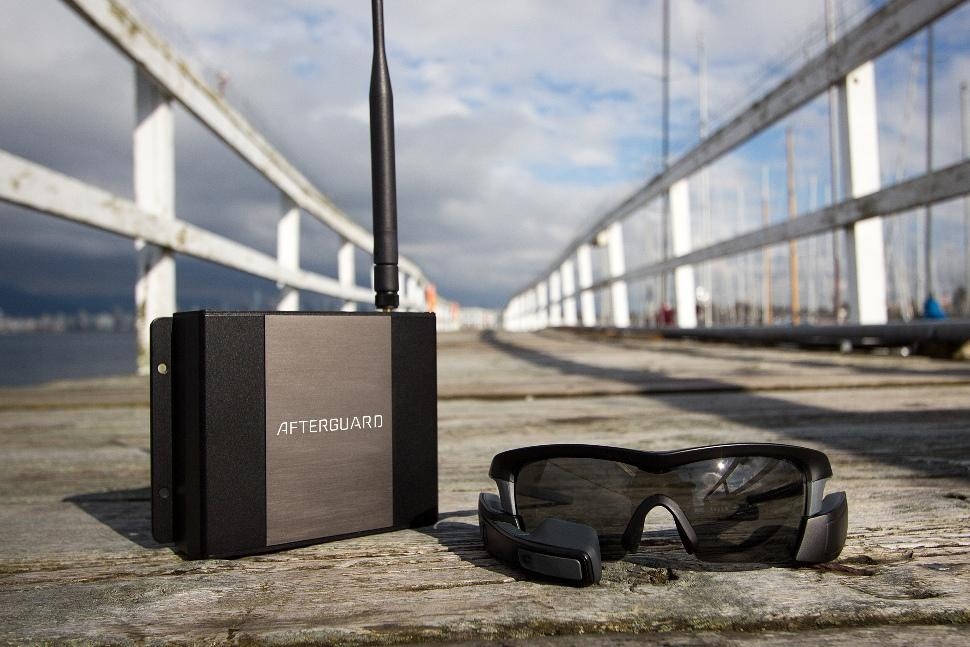Afterguard
Jump to navigation
Jump to search
| Afterguard | |
|---|---|

|
|
| Category | smartglasses |
| Developer | Afterguard Marine[1] |
| Announced | April 2014[2] |
| Released | Developers:
Consumers: January 2015 |
| Price | 2500 USD (2014)[3] |
| Operating system | custom |
| Display | LED |
| Resolution | 240x400 pixels[2] |
| Weight | 60 g[1] |
| Controls | inertial, touchpad, buttons[4] |
| Standalone[5] | |
| http://afterguard.co/ | |
Afterguard are smartglasses tailored specifically for sailors. The system consists of a Recon Jet unit of smartglasses paired with a discrete Central Communications Unit that is connected to the instruments of a ship. This allows crucial navigational, weather or other information to be streamed to the device while keeping the hands of the user free.
Contents
Main characteristics
Purpose
Company & People
Important Dates
Ethical Issues & Health Risks
There has been no issues noted with Microsoft HoloLens so far specifically. However, some general issues connected to Smartglasses in general still apply.
Enhancement/Therapy/Treatment
Public & Media Impact and Presentation
Public Policy
Related Technologies, Project or Scientific Research
References
- ↑ 1.0 1.1 AFTERGUARD MARINE. Afterguard [online]. Available online at: http://afterguard.co/ (Retrieved 19 August 2015)
- ↑ 2.0 2.1 BOXALL, Andy. These smart specs are like Google Glass for sailors. Digital Trends [online]. 2014, April 15. Available online at: http://www.digitaltrends.com/mobile/afterguard-recon-smart-glasses-for-sailing/ (Retrieved 19 August 2015)
- ↑ ROSENBAUM, Dan. Afterguard Uses Recon Display for Yacht Racing. Wearable Tech Insider [online]. 2014, April 8. Available online at: http://wearablesinsider.com/2014/04/08/afterguard-uses-recon-display-yacht-racing/ (Retrieved 19 August 2015)
- ↑ AFTERGUARD MARINE. Technical Specifications[online]. Available online at: http://afterguard.co/technical-specifications/ (Retrieved 19 August 2015)
- ↑ Shows if the device is a standalone wearable computer or if it needs to be connected to a processing unit (computer, smartphone) to function.